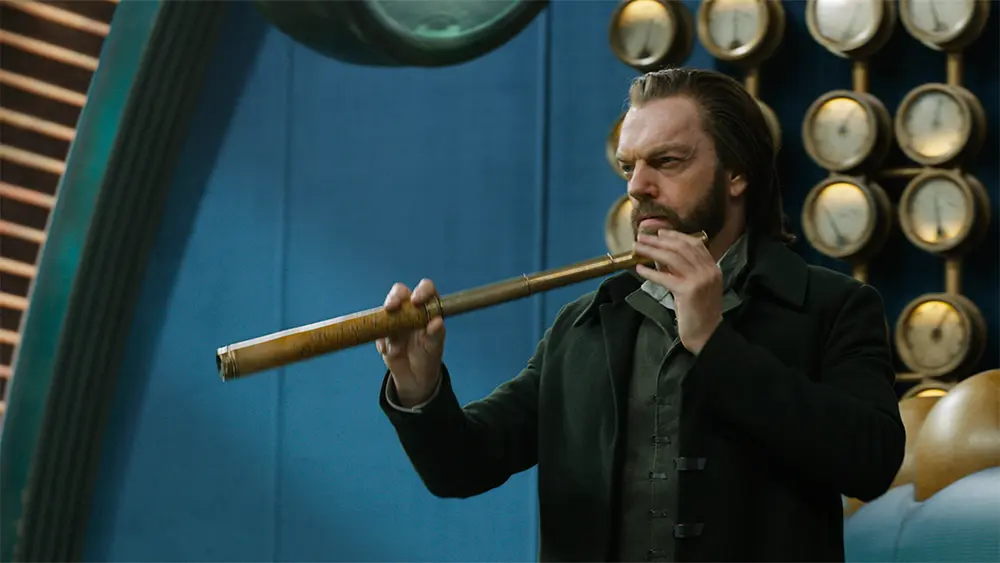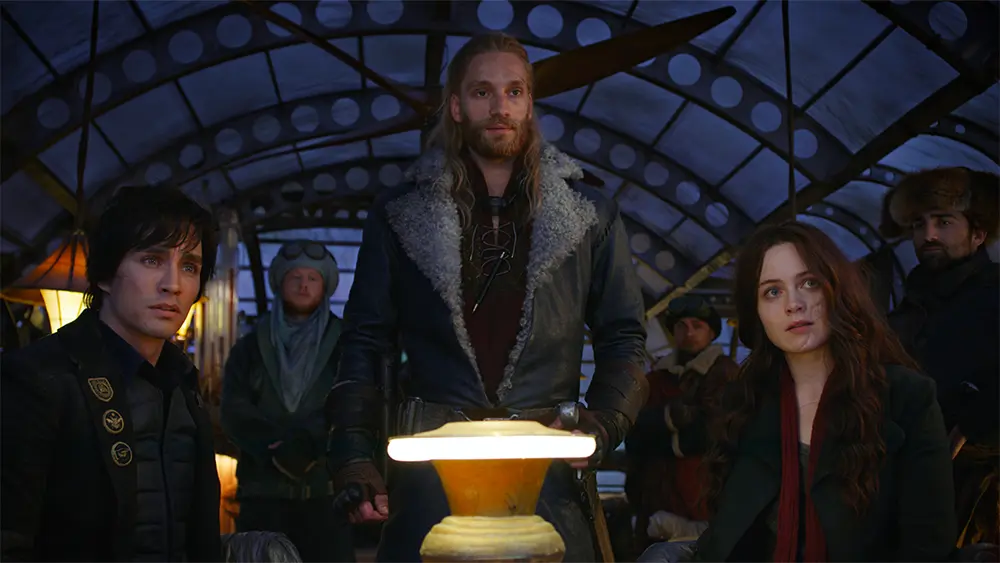Mortal Engines is the most recent adaptation of a young adult novel series to flop at the box office. In fact, its one of 2018’s biggest box office disasters according to Vanity Fair, with the film only managing to gross just $7.5 million domestically in its opening weekend against a reported $100 million budget. Box office analyst Jeff Block of Exhibitor Relations told Variety, “This is a true Christmas disaster for Universal. They took a big swing, and they struck out.” The film isn’t actually that bad. Sure it has an overly complicated storyline, with a predictable plot twist towards the film’s climax, but it’s hardly unwatchable and is quite entertaining. The film’s stunning visuals and fast-paced action sequences are certainly worth writing home about. The film’s central lead is the inspirational Hester Shaw (Hera Hilmar), a young woman who overcomes her traumatic past to take on cinema’s ultimate bad guy Hugo Weaving (it’s worth mentioning that Weaving is the film’s only “major and well-known star”, which may have contributed to the film’s box office reception).
READ: Movies like Mortal Engines
Mortal Engines isn’t exactly a masterpiece but it is hardly a disaster that many other critics would have you think. Regardless of my opinion, the film is a disaster for its studio Universal, and it is more than likely that we won’t get a sequel. On paper, Mortal Engines had so much potential; the screenplay was co-written by Peter Jacksn, and directed by frequent collaborator Christian Rivers (who worked on Jackson’s The Lord of the Rings, and The Hobbit series). Still, the problems were already bubbling below the surface. The books were hardly well-known in America, and it’s quite a hard story to pitch to those who aren’t exactly familiar with the source texts. Mortal Engines is set in a futuristic, steampunk version of London, now a giant machine striving to survive on a world running out of resources. With so much background explored in the books, it would be hard to translate that all to the screen. Rivers attempts his best, but still, the film does get bogged down with characters constantly giving exposition to each other for the sake of the audience.

Still, one can hardly blame Universal and Mortal Engines‘ filmmakers for trying to find the big franchise series based on a young adult novel series. The success of the Harry Potter films with its overall box office gross of $7.7 billion is the stuff of legends. Unlike Mortal Engines, the Harry Potter novels are well-known across the globe, with the books being translated into 74 languages, including languages as diverse as Azerbaijani, Malayalam and Welsh. Adaptations of novels aimed at young adults seem to make a lot of sense, for many reasons. Firstly, there is already a pre-existing audience for these adaptations which makes marketing a lot easier, as these books are already well-known in popular culture. The Hunger Games trilogy sold more than 65 million copies in the US alone, and according to Amazon, The Hunger Games trilogy surpassed the record previously held by the Harry Potter series, in the total number of books sold. Like Harry Potter, The Hunger Games novels were also translated into many different languages. And, like Harry Potter, the Hunger Games novels were also read by more mature readers.
If a series of YA novels can gain a more adult fanbase, it is guaranteed to have more success at the box office (the average age of cinema attendees in the UK is between 15-25 at 27%, followed by 17% of the audience being between the ages of 25-34). As Vulture writer, Why Have So Many Recent YA Adaptations Flopped at the Box Office?), book series’ like The Hunger Games, Harry Potter, and Twilight were simply the most successful at crossing over into an adult readership allowing them to appeal a larger percentage of the cinema audience. Less known franchises such as Beautiful Creatures and The Mortal Instruments seem to struggle to cross over from a more teenage reader base to a more adult one, which probably contributed in those films having such a low gross at the box office.

According to Buchanan, timing is crucial too. As he states, ”Momentum is also important. The first Twilight movie came out just four months after the final Twilight novel, Breaking Dawn, had sold record-breaking numbers; the first Harry Potter film was released in between the fourth and fifth Harry Potter novels, which deepened and darkened the series in a way that drew in more adults.” The final book in the Mortal Engines saga came out in 2006, with Peter Jackson originally expressing his interest in 2009, when the first book in Reeves’ Fever Crumb series (a prequel to the Mortal Engines novels) had just been released. The last book in the Fever Crumb series to be released was back in 2011, which means that Mortal Engines is hardly well-known among the public who have now moved onto other franchises.
Mortal Engines was also up against other film franchises such as Bumblebee, Aquaman, and Spider-Man: Into the Spider-Verse, all of which dominated the box-office. Mortal Engines had a tough competition lined up for it before it had even been released, and perhaps the decision to release it around the December period was a poor one. Unlike its competition, Mortal Engines wasn’t part of an already known and established cinematic universe, which meant it was hard to sell to audiences who weren’t aware of the series of books. With all of these factors to consider, is it any wonder that the film flopped? If we can learn anything from the recent case of Mortal Engines, it’s that critics don’t really play a major role in a film’s success; there are a number of factors that will either make or break a film franchise. Hopefully, Mortal Engines can possibly live on in the form of a cult classic, and personally, I found it to be a pleasant surprise as I went in with very little expectations. Simply put, don’t be quick to judge a film by its box office results.




